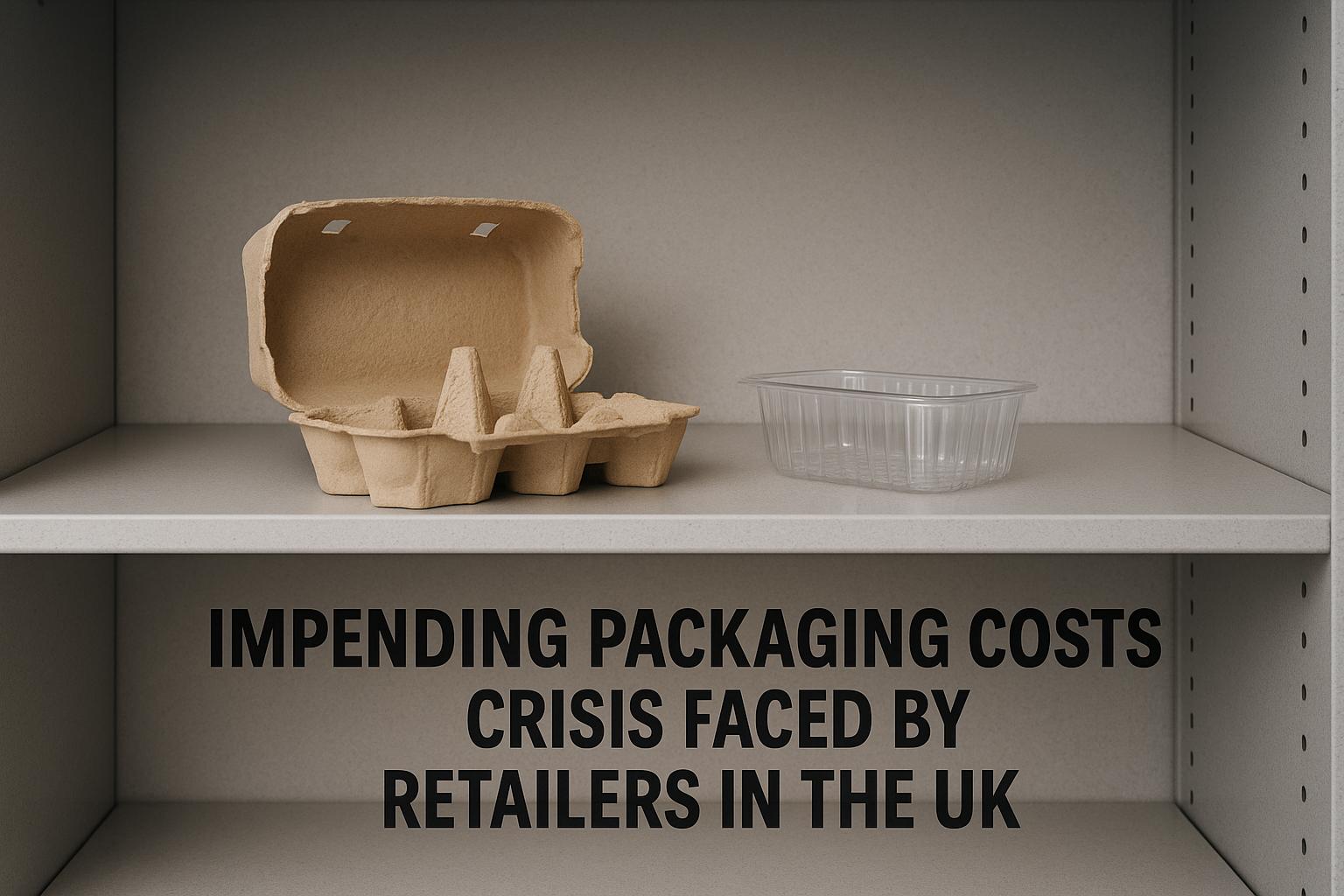Sainsbury’s has issued a cautionary statement highlighting that UK packaging compliance costs linked to new extended producer responsibility (EPR) rules and related waste management policies are running into “tens of millions of pounds.” Speaking ahead of the upcoming budget, chief executive Simon Roberts urged the government not to add further taxes that could push retail prices higher, underscoring the financial strain these regulatory obligations place on retailers.
The rising packaging compliance costs stem primarily from the UK’s packaging EPR regime, which requires producers to provide detailed packaging data and finance the collection and processing of household packaging waste through phased-in fees. Government guidance confirms ongoing reporting requirements, with updates scheduled into 2025 as the scheme matures. Recent amendments introduced in Parliament aim to fine-tune the scheme’s first year starting January 2025. These changes address critical areas such as defining fibre-based composites, the scope of modulated fees based on recyclability, treatment of corporate mergers, and recognition of closed-loop recycling claims. Industry body PackUK, which became the scheme administrator earlier this year, has already begun issuing producer notices and outlined compliance timelines toward 2030.
PackUK’s role under the EPR framework is significant. Launched in January 2025, the organisation embodies the ‘polluter pays’ principle by shifting the financial burden of household packaging waste management from taxpayers and local authorities to packaging producers. According to government statements, PackUK is tasked with setting pEPR fees, collecting payments from producers, and distributing funds to local councils to enhance recycling services. The government anticipates the scheme will drive roughly £10 billion of investment in recycling infrastructure over the next decade and support around 21,000 new jobs in England alone, an important context underscoring the scale of this transition.
Beyond EPR, Sainsbury’s and other retailers must also navigate rising costs linked to the Plastic Packaging Tax (PPT), which increased to £223.69 per tonne on 1 April 2025. HM Revenue & Customs confirmed that the tax now allows mass balance accounting for chemically recycled content, a development that requires adjustments in 2025–26 budget planning for many suppliers and retailers alike. Adding to the complexity, a UK-wide Deposit Return Scheme (DRS) is under active development. With a Deposit Management Organisation appointed in May 2025 to oversee the scheme's design and operation across England, Northern Ireland, and Scotland, businesses placing drinks containers on the market will face new labelling, data reporting, and container take-back obligations once the scheme goes live later in the decade.
These packaging reforms are part of broader governmental efforts to support a more sustainable and efficient circular economy. For example, the government announced a £1.1 billion investment in July 2025 aimed at improving local recycling services across England, funded in part by packaging reform revenues. This move aligns with the policy intent of transferring the financial responsibility of managing packaging waste away from local councils to producers, thus aiming to reduce costs for taxpayers while stimulating recycling infrastructure development.
The government’s “Simpler Recycling” reforms further mandate local authorities to collect core recyclable materials by March 2026, followed by the inclusion of plastic film by 2027. These changes interact with EPR fee setting and recyclability assessments, heightening the need for producers and retailers to track compliance metrics closely. Updated recyclability criteria, increasing data granularity demanded by the regulator, potential modulated fees based on packaging sustainability, and further legislative amendments are expected as the pEPR scheme evolves.
The UK government has already allowed a one-year deferral in the EPR scheme’s implementation, from October 2024 to October 2025, to ease economic pressures on consumers and businesses amid broader inflation concerns. This deferral followed extensive industry consultation and was designed to refine the scheme’s design, reduce implementation costs, and ensure long-term recycling goals are met.
Sainsbury’s warning about escalating UK packaging compliance costs brings a sector-wide issue into sharp focus. As retailers and FMCG brands grapple with these increasing regulatory costs, packaging compliance has become a significant, material expense. Companies operating in or exporting to the UK must build these evolving requirements, covering pEPR fees, plastic packaging tax, deposit return schemes, and recyclability mandates, into their operational and financial planning to remain compliant in what is now a rapidly shifting regulatory landscape.
📌 Reference Map:
- [1] (Yahoo Finance) - Paragraphs 1, 2, 3, 5, 7, 8
- [2] (UK Government) - Paragraphs 3, 4
- [3] (UK Government) - Paragraph 7
- [4] (UK Government) - Paragraph 6
- [5] (House of Commons Library) - Paragraph 4
- [6] (Recoup) - Paragraph 6, 8
- [7] (UK Government) - Paragraph 2
Source: Noah Wire Services
